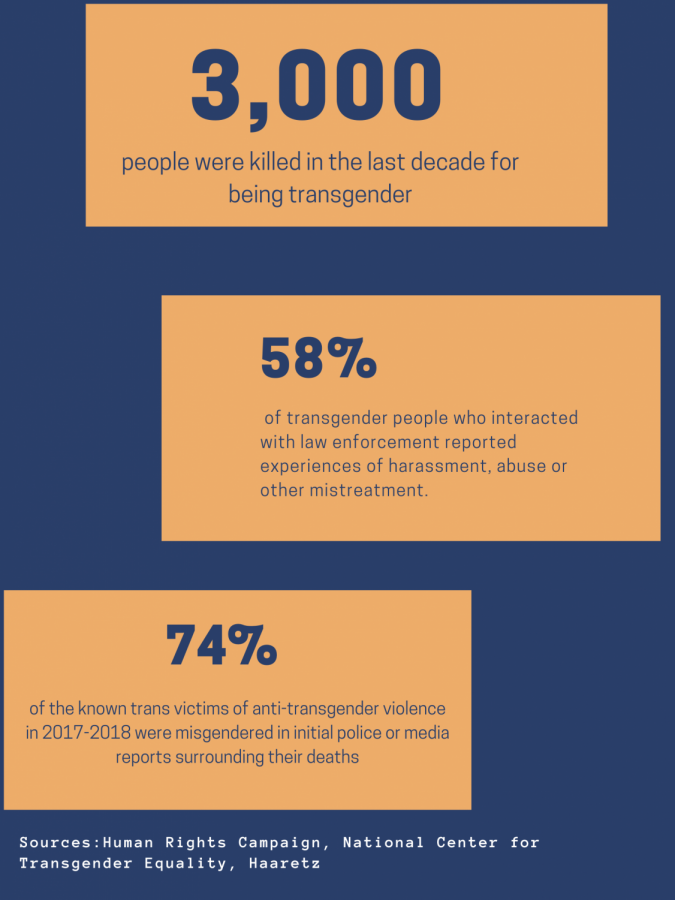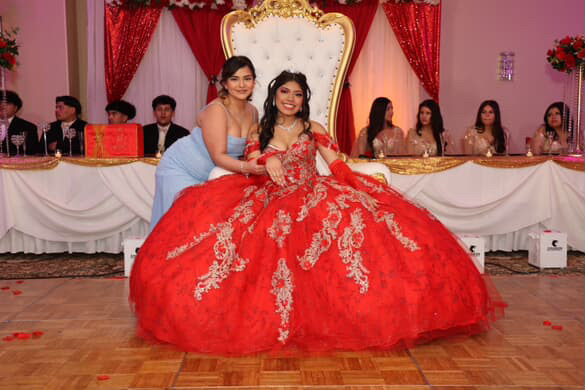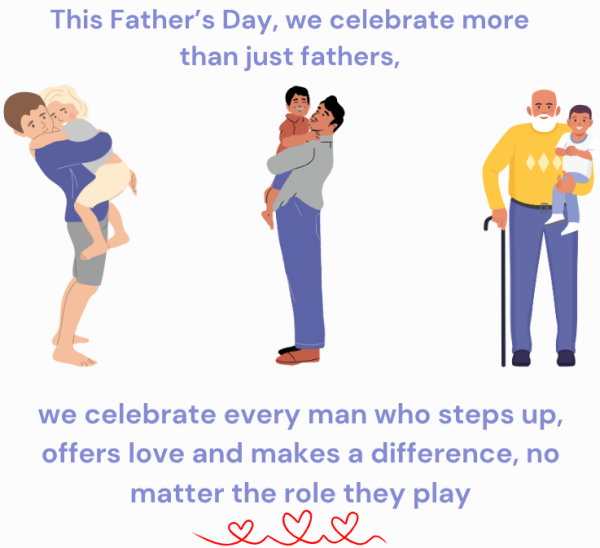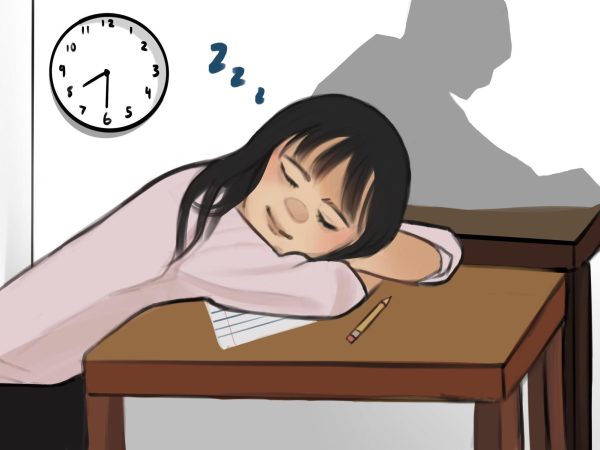Ongoing violence impacts transgender communities
Sources: Human Rights Campaign, National Center for Transgender Equality, Haaretz
Over 3,000 transgender people worldwide have been shot, stabbed or beaten to death, in the past decade according to Haaretz. In the U.S. alone, at least 33 transgender or gender non-confirming people were killed since Oct. 6, 2020, according to the Human Rights Campaign.
“The number of violent transgender deaths in 2020 is completely unacceptable,” senior Eva Brandon said. “Everyone, including the LGBTQ+ community, should make more of an effort to protect and value transgender lives. We must all work together to ensure that this issue receives the attention it rightfully deserves, and to ensure that the number of violent transgender deaths decreases in the years ahead.”
According to Insider, transgender people in Black and Latino communities are reported to face more violence than those of other races. As the National Center for Transgender Equality (NCTE) U.S. transgender survey (USTS) noted, 47% of Black respondents and 30% of Latino respondents reported being denied equal treatment in their daily lives or being verbally harassed in 2019 because of their transgender identity. While only 16% of the transgender population is Black, 79% of the known transgender victims of violence are Black.
“Black people have had an increase of violence against them. The Black Lives Matter movement is gaining so much steam right now for a reason,” junior Ashley Snevely said. “So of course more and more deaths are [going to affect] the Black transgender community.”
After interacting with the law enforcement officials, 58%of transgender people reported experiencing harassment, abuse or another mistreatment solely for being transgender according to NCTE. Approximately 60% of people have reported being physically assaulted and 64% report being sexually assaulted.
According to NCTE’s published article “Failing To Protect and Serve,” transgender people often feel like they can do nothing about this mistreatment, knowing that they risk falling victim to additional mistreatment by those tasked with overseeing the complaint process. Even though transgender people are more likely to be victims of violence than non-transgender people, over half of all USTS respondents feel uncomfortable calling the police for help when they need it.
“I feel that this issue is greatly underrepresented, and ignorance towards it is only making it worse,” Brandon said.“To truly work towards a future in which transgender people can feel safe, we as a country must address transgender violence and work together to find ways to end it.”
Although human rights activists, bloggers and the media have brought some attention to the crisis in the past year, data collection is often incomplete or unreliable regarding violent or fatal crimes against the transgender community, according to CNN. Some victims’ deaths may go unreported, while others may not be identified as transgender in the media because journalists or family members could refuse to publicly acknowledge their gender identity. According to Gscene, while victims of transphobia and violence can be targeted up to 50 times in one year, only three in 10 report the incident.
“Violence against the transgender community is swept under the rug all too often,” said Brandon. “In some cases, this is due to basic transphobia, instances of assault and homicide [are] being ignored or not taken seriously. The fear of being ridiculed, alienated or brushed aside causes many transgender people to refrain from reporting instances in which they’ve been mistreated. These factors all come together to make the pressing issue of trans violence unfamiliar to many.”
Some transgender people are killed by people closest to them. According to the Human Rights Campaign, half of transgender and gender non-conforming people killed since 2013 have been killed by an acquaintance, friend, family member or intimate partner.
“People are being hurt and killed by others who are committing hate crimes and there are barely any protections for them,” Snevely said. “Open your eyes and listen to your morals. These people aren’t hurting you, it’s quite the opposite.”
Your donation will support the student journalists of Chantilly High School. Your contribution will allow us to cover our printing and annual website hosting costs.
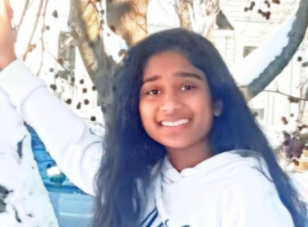
Anwita Suryadewara is a freshman in highschool. She plays the piano, guitar and the clarinet. She also loves running in her free time.

Natasha Guharoy is a sophomore at Chantilly High School. This is her first year being a part of The Purple Tide. She is also in Chantilly Robotics and...


